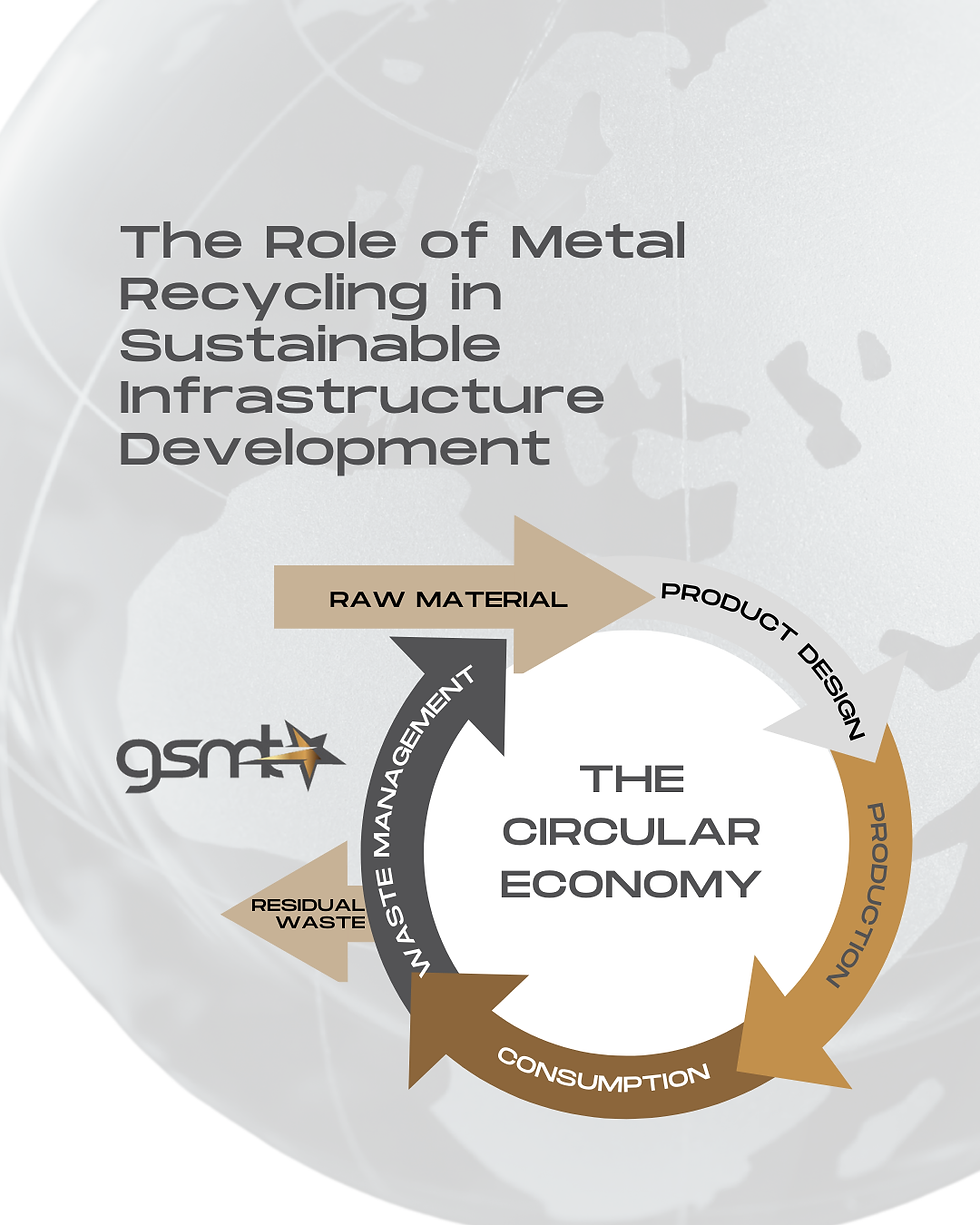Metal Recycling: Sustainable Infrastructure Development
- GSMT
- Feb 19, 2025
- 3 min read
As we continue to become more and more aware of the impact our decision making impacts the environment, it’s no surprise that the various industries are looking to reduce their own impact on the environment, whilst also ensuring that they continue to operate effectively and efficiently.
Being specialists within our industry, we are extremely aware of just how incredibly important the role of recycling industrial scrap metal is in determining the future of our planet for generations to come. So let’s delve a little deeper and explain the importance…
How does metal recycling reduce the impact on the environment?
When virgin - new - metals are mined for, the amount of energy and natural resources used is incredibly high, so by recycling industrial scrap metal, whether from railways, demolition sites, etc - it stands to reason that we can significantly reduce our that level of energy, reducing our carbon emissions, along with water consumption. In fact, recycling metal can reduce energy by up to 90% which can only have a positive effect.
How does metal recycling support a circular environment?
We are all aware of the three Rs of recycling: Reduce, reuse and recycle, and its these sustainability rules that fuel a circular economy; where (in our case) scrap metal is reused and repurposed instead of being discarded. By ensuring that such valuable resources are reused across various industries to do our utmost to reduce waste, lower the costs involved and to meet the regulatory requirements to protect our environment.
How does metal recycling impact the supply chain and improve cost efficiency?
As the demand for metals continues to grow across the world, so does the cost, but using recycled metals provides a far more cost effective solution than when new metals are used, which then has a knock on effect throughout the supply chain, reducing costs and making us more production and manufacturing financially sustainable.
How does metal recycling help improve infrastructure and make it more resilient?
Hard metals such as steel, aluminium and copper keep their strength when recycled, so are invaluable when it comes to infrastructure and developments that need to utilise strong, high quality materials resulting in long lasting, sustainable solutions..
How does metal recycling help meet sustainability goals?
The UK government’s Environmental, Social and Governance - ESG - goals are to reduce pollution, improve water quality, and become net zero by 2050, which means that all businesses across all industries are making this a priority.
Recycling metals can help overcome any sustainability challenges, ensuring they continually work towards and achieve their sustainability targets. Reducing waste, slashing emissions, and the promotion of responsible material use not only improves environmental footprint but makes companies more viable.
How does metal recycling aid our economic growth?
Recycled resources are a valuable commodity across the world, and by Goldstar Metal Traders being able to export scrap metal effectively and efficiently across the world, we are supporting trades worldwide, resulting in economic benefits that make a significant contribution to the development of a sustainable infrastructure.
All in all, it’s important to remember that recycling metal is far more than the process of managing waste. Using recycled metals across industries including construction, transportation, and industrial projects, we can significantly reduce costs, strengthen resilience, and reduce impact on the environment.
For companies looking to make a meaningful impact, by partnering with Goldstar Metal Traders as your trusted metal recycling provider, you are taking an important step forward towards a more sustainable, cost-efficient, and sustainable future infrastructure.





Comments